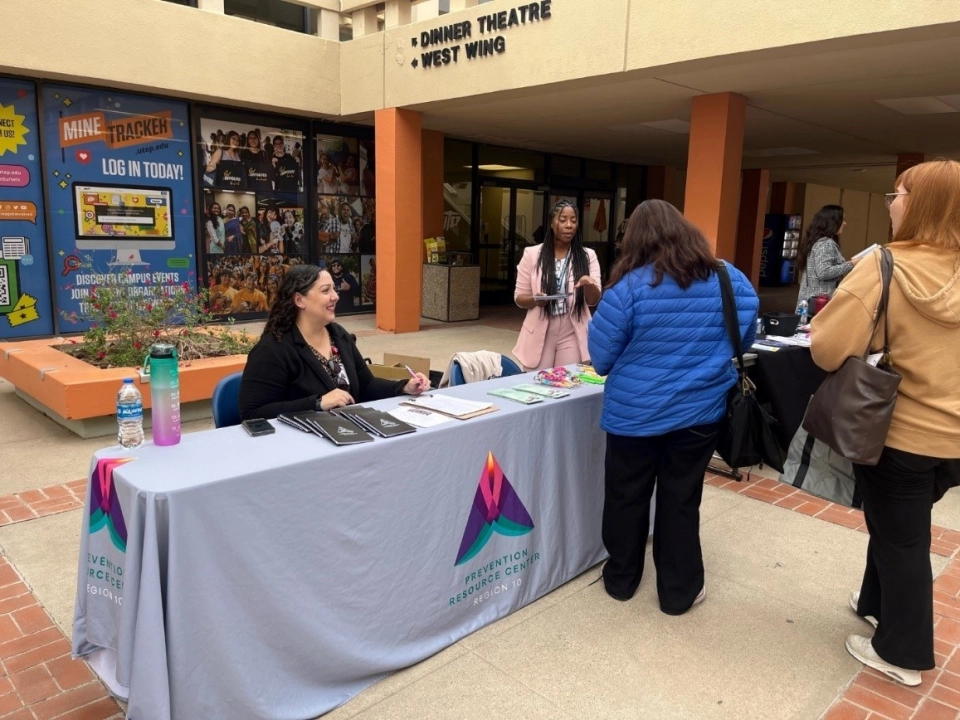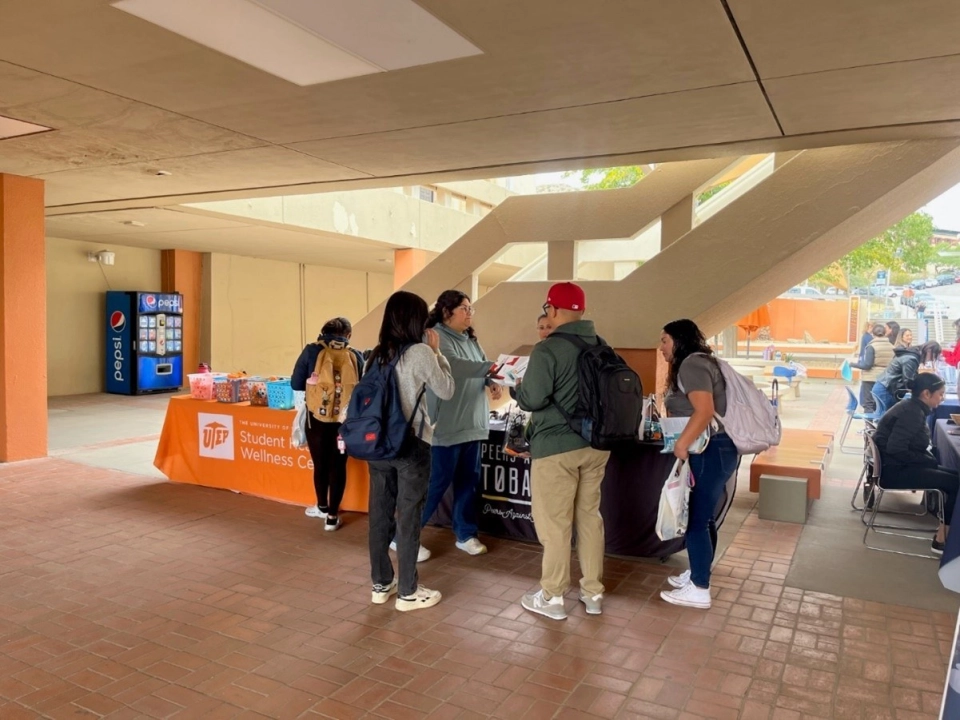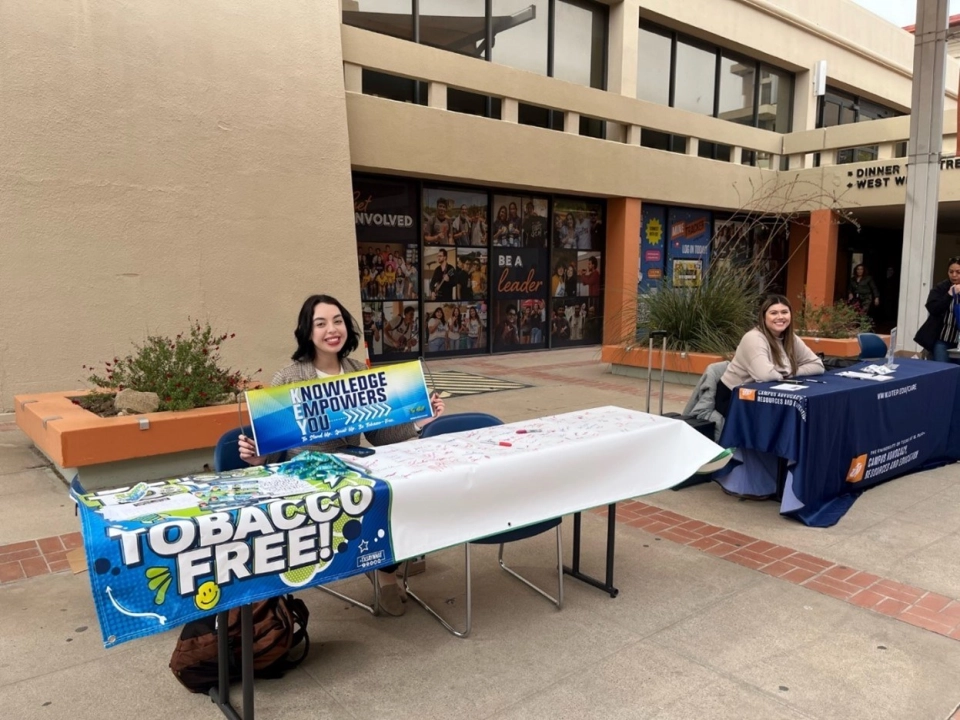Eliminate Tobacco Use Day is an annual event dedicated to building tobacco-free cultures on campuses. ETU Day was celebrated on November 16, 2023, and serves as a reminder of the severe health risks associated with smoking, vaping and other forms of tobacco use. It’s also an opportunity for campuses to promote tobacco and vaping prevention, campus tobacco-free policy and cessation services. The spirit of ETU Day is rooted in public health advocacy, encouraging individuals and communities to actively participate in efforts to eliminate tobacco use and its harmful effects.
See how some of our partner institutions celebrated ETU Day.
The University of Texas at Arlington
The University of Texas at Arlington (UT Arlington) celebrated ETU Day by hosting a tobacco-free celebration for the entire campus community. The event featured giveaways, T-shirts and barbecue provided by Hurtado BBQ, a local restaurant owned by UT Arlington alums. Attendees had the opportunity to visit information tables to learn about university resources for employees and students, as well as local resources in Tarrant and Dallas Counties. They also participated in interactive activities such as quizzes about nicotine products and trends in tobacco use.
The event had great participation with about 575 faculty, students and staff in attendance.

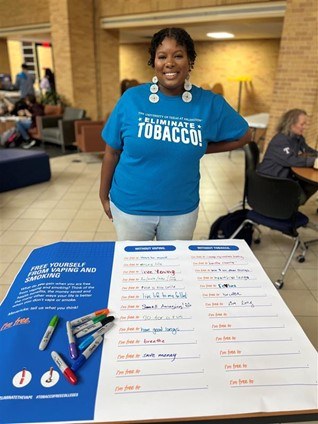
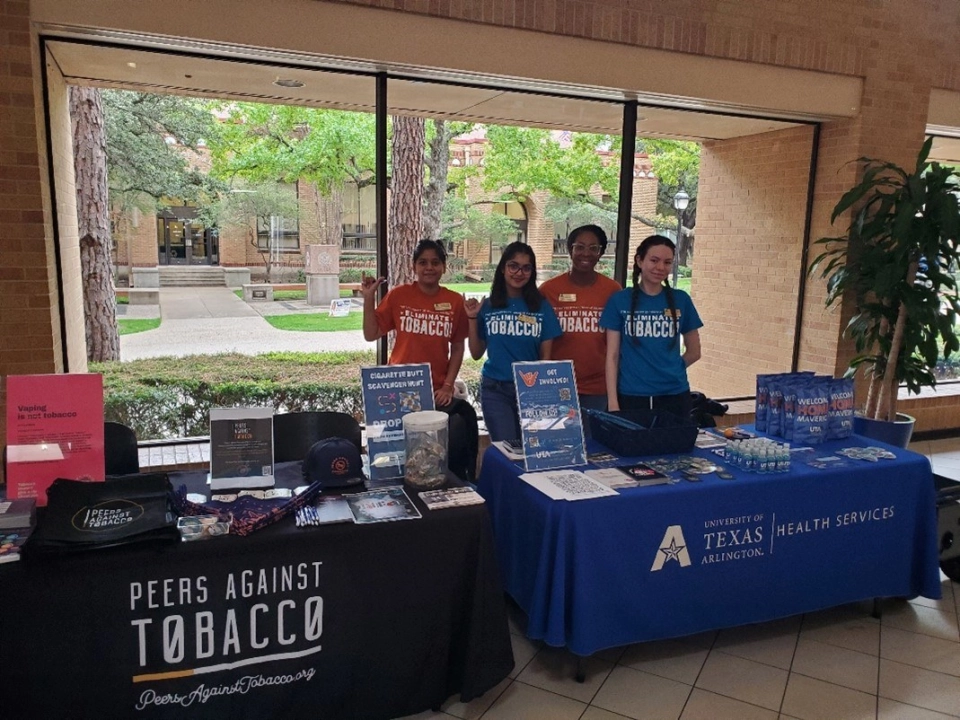
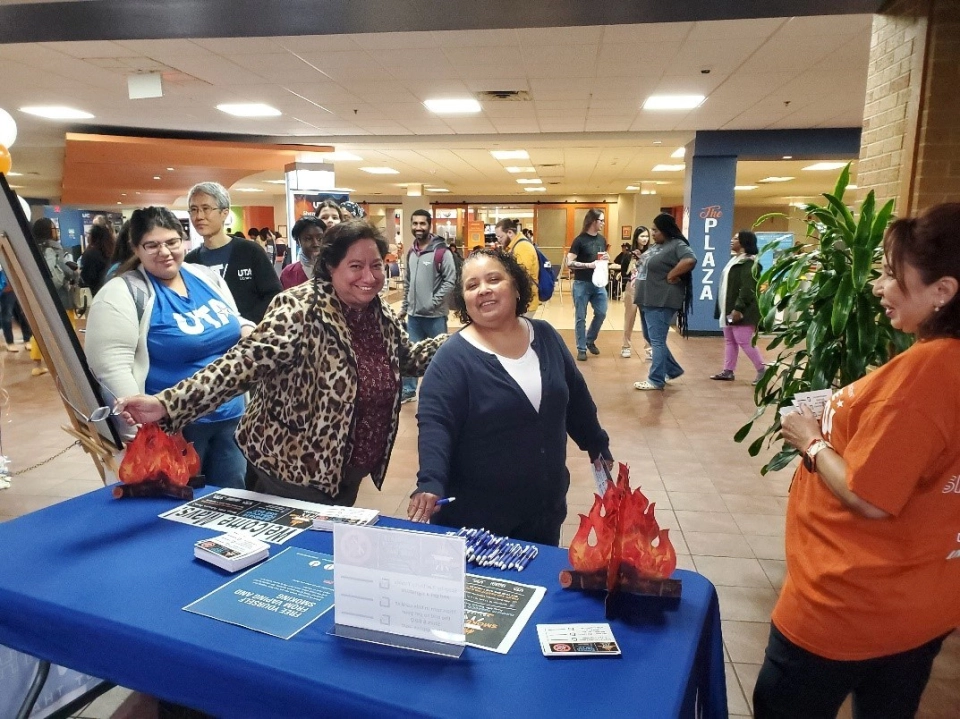
The University of Texas at Tyler
The University of Texas at Tyler (UT Tyler) observed ETU Day as part of the national Great American Smokeout. Students had the opportunity to attend a tabling event hosted by the Operation Tobacco Cessation committee of the UT Tyler Fisch College of Pharmacy chapter of the American Pharmacists Association – Academy of Student Pharmacists student organization. This committee was initiated by student pharmacists interested in educating their peers about tobacco use from a healthcare professional perspective and to provide information to the UT Tyler campus community about available resources for those looking to quit using tobacco products.
The 25 students who visited the table during the Great American Smokeout event had the opportunity to:
- Win a Peers Against Tobacco swag item like a t-shirt, water bottle, bag or hat by either completing an American Cancer Society "Quit Card" to show their commitment to quit today or encourage someone else to quit, or by guessing "how much tar is in the jar?" to see how many cigarettes a person would have to smoke in one year to have the amount of tar displayed in the jar.
- Take other Peers Against Tobacco swag, such as stickers, coloring sheets and handouts. Students were most interested in the vaping information!
- Receive a flyer with a list of free resources available on the UT Tyler campus and in the community for tobacco cessation and education to use for themselves or share with friends.
- Interact with pharmacy students to learn more about Operation Tobacco Cessation, Peers Against Tobacco and Eliminate Tobacco Use.
The Operation Tobacco Cessation committee will continue to partner with UT Tyler's Peers Against Tobacco student organization to host more events in the future and share opportunities for training provided by Eliminate Tobacco Use.
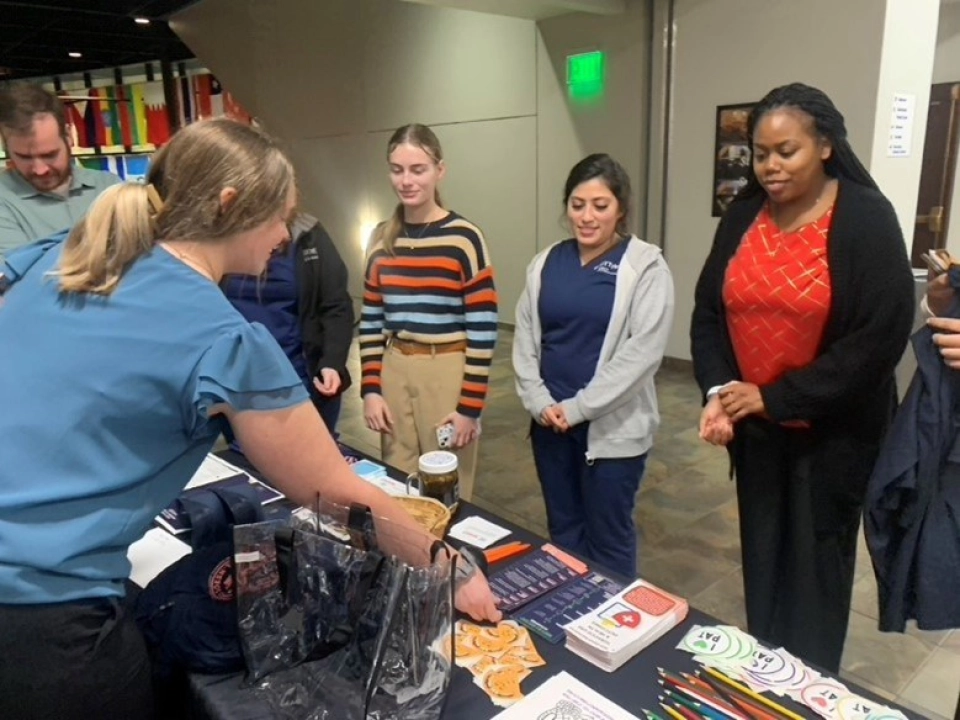
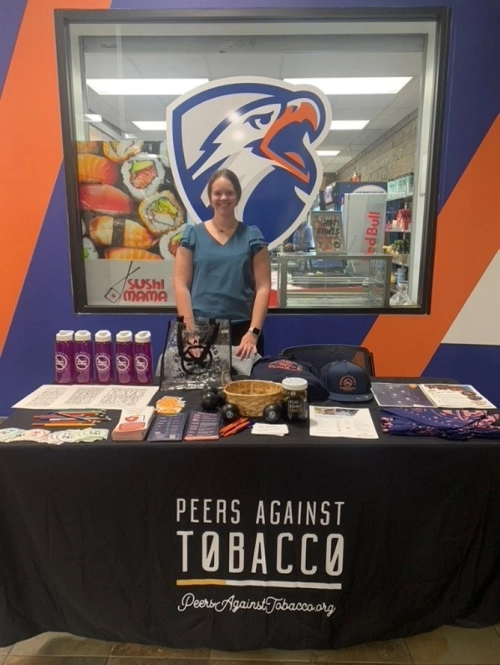
The University of Texas at El Paso
The University of Texas at El Paso’s (UTEP) Student Health and Wellness Center celebrated Eliminate Tobacco Use Day with their annual resource fair. The event was organized by interns in the Public Health Program at UTEP, and aligns with the program’s responsibility, competencies and sub-competencies.
Daniela Lerma, Assistant Director of the Student Health and Wellness Center shared that the objectives for the event included educating on tobacco product health risks, creating visibility for UTEP’s Tobacco Free Campus Policy and providing resources for those who are users and are ready to quit. To achieve this, UTEP invited 18 organizations, including the American Cancer Society, Say What! youth tobacco prevention coalition, The Hospitals of Providence, Las Palmas/Del Sol Medical Center, UTEP Clinical Laboratory Science Program, UTEP Counseling and Psychological Services and the Aliviane clinic.
To encourage student participation, the organizers offered an incentive based on the number of tables visited. Attendees had to visit a minimum number of tables to receive the incentive, which ensured a more substantial possible impact and education opportunity for the organizations attending.
